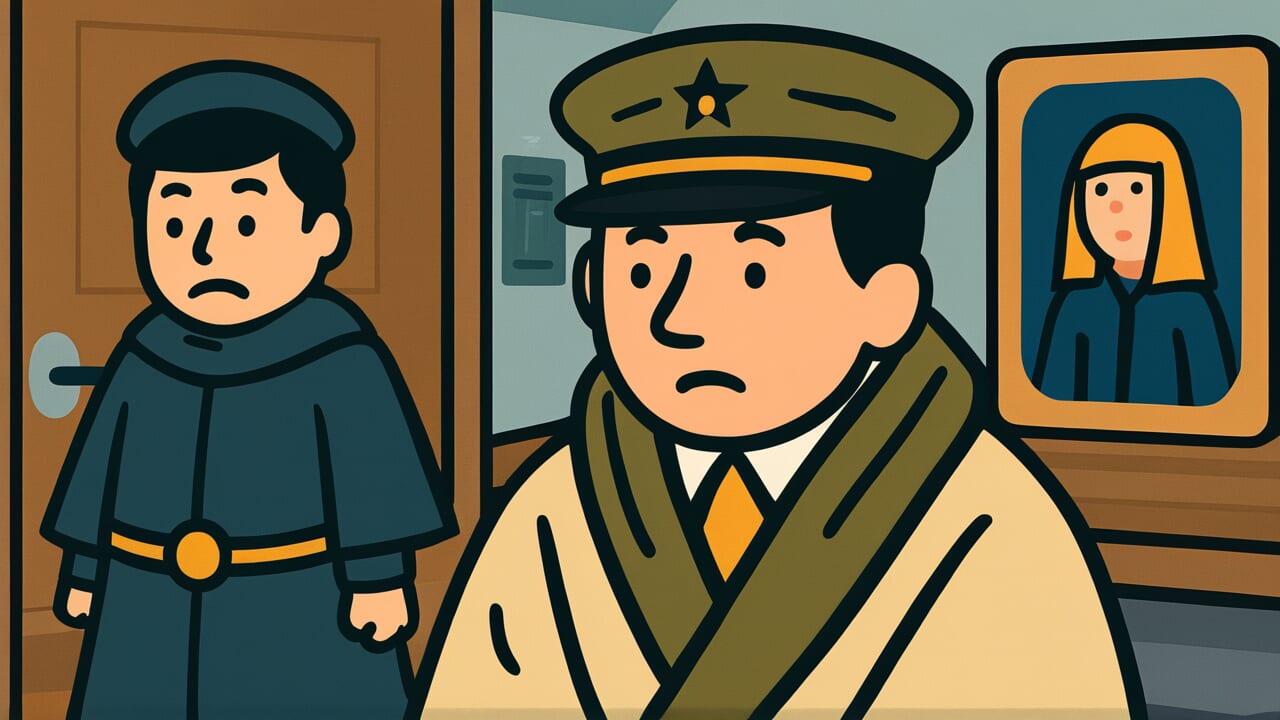How to Read “Warriors go hungry, scholars go cold”
Gunsha hidarushi jusha samushi
Meaning of “Warriors go hungry, scholars go cold”
This proverb means that warriors are poor and go hungry, while scholars are poor and suffer from the cold.
It describes how people who pursue honor and ideals in their careers often struggle financially and face material hardship.
Warriors had to live simply to maintain their dignity. Scholars became so absorbed in their studies that they neglected earning a living.
This proverb captures the gap between ideals and reality in a simple phrase.
You might use this saying when pointing out that noble professions don’t always guarantee a comfortable life.
It also applies when discussing the price of prioritizing spiritual values over material gain.
Even today, it describes artists and researchers who choose self-fulfillment over financial reward.
Origin and Etymology
The exact source of this proverb is unclear. However, it likely reflects the social structure and work values of the Edo period.
“Gunsha” refers to warriors or samurai. “Jusha” means Confucian scholars. “Hidarushi” is an old word meaning hungry or famished.
During the Edo period, samurai held honored positions as the ruling class. But their actual economic situation wasn’t always comfortable.
Lower-ranking samurai received small stipends. Many struggled to make ends meet. Yet samurai pride prevented them from doing business or side work.
Many endured days of hunger rather than compromise their dignity.
Confucian scholars also devoted themselves to learning rather than pursuing profit. They accepted a life of noble poverty.
Learning was respected, but it rarely led to direct income. You can imagine them shivering in shabby clothes while bent over their books.
This proverb expresses with some irony how those in honorable, idealistic professions often lacked material comfort.
It shows the sharp observation of people back then. They noticed that social status and economic wealth don’t always match.
Interesting Facts
The word “hidarushi” in this proverb is an archaic term rarely used today.
It means the same as “himojii” (hungry), but has a more old-fashioned, literary sound. The use of this word itself shows how old this proverb is.
Some Edo period samurai made umbrellas or did other side work because of poverty.
They often worked secretly at night to hide it. This shows the conflict between samurai dignity and financial hardship.
Usage Examples
- He earned his doctorate, but it’s truly “warriors go hungry, scholars go cold”—he’s struggling with the low pay of research positions
- When I see my friend who chose the path of art, I’m reminded of “warriors go hungry, scholars go cold”
Universal Wisdom
The universal truth in this proverb is the dual nature of value in human society.
We constantly swing between two measures: spiritual value and material value.
Warriors and scholars were poor because they prioritized honor and knowledge over money. These are invisible values.
But humans can’t live on spirit alone. We need to satisfy hunger and protect ourselves from cold.
This contradiction is a fundamental dilemma of human existence.
What’s interesting is that this proverb isn’t just criticism. It contains sympathy and respect.
There’s real beauty in pursuing ideals despite poverty. But the proverb doesn’t ignore the heavy price paid.
This structure hasn’t changed in modern society. Teachers, nurses, artists, and researchers are socially important and respected.
But these professions don’t always pay well.
What do we value most? Why do we work? This proverb confronts us with these fundamental questions.
How do we balance ideals and reality, spirit and matter? This is humanity’s eternal theme across all ages.
When AI Hears This
Why do warriors and scholars, who chose opposite ways of life, both end up poor?
This remarkably matches the second law of thermodynamics: “Entropy in an isolated system always increases.”
Entropy simply means the degree of disorder or randomness. For example, hot coffee always cools down if left alone.
This happens because heat energy spreads to the surroundings, moving toward equilibrium. It never spontaneously gets hotter.
Even when warriors concentrate energy on martial arts and scholars on learning, that energy inevitably dissipates within the larger system of society.
A warrior’s military skills lose value in peaceful times. A scholar’s knowledge generates no reward when separated from practical use.
What’s interesting is that both chose “specialization”—a low-entropy state.
Increasing expertise equals concentrating energy at one point. But as thermodynamics teaches, such ordered states cost energy to maintain.
Without continuous external energy input, the system inevitably moves toward high entropy—equilibrium where “both equally struggle.”
This proverb empirically captures that human society cannot escape the physical laws of the universe.
Lessons for Today
This proverb teaches modern people about the importance of priorities in life choices. You can’t have everything.
When you choose something, you let go of something else.
What matters is clarifying what you consider most valuable. Do you seek economic prosperity, or do you pursue your beliefs and ideals?
Neither choice is right or wrong. You just need to understand what awaits as a result of your choice.
At the same time, this proverb questions society itself. Why aren’t people doing truly important work rewarded economically?
What should our society value and reward?
If you choose to pursue ideals, you may need to prepare for material difficulties.
But within those difficulties, you might find true fulfillment. Choosing stability is also wisdom.
What matters is taking pride in your choice and having no regrets.



Comments